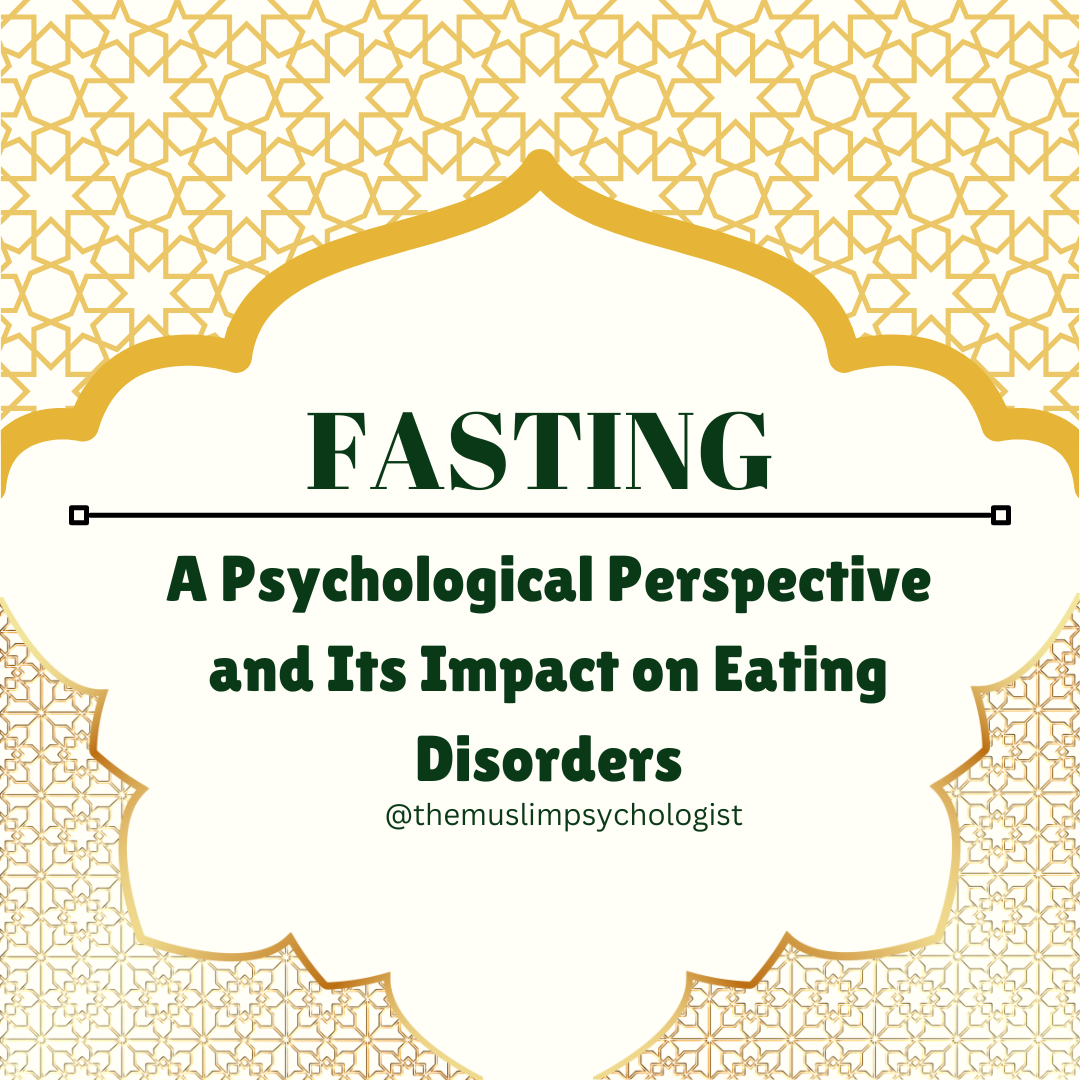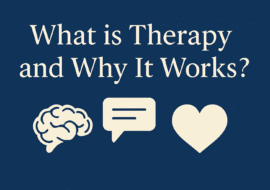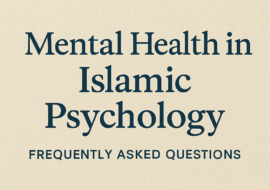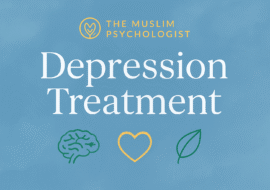
Fasting & Mental Health: A Psychological Perspective
Fasting during the holy month of Ramadan is one of the Five Pillars of Islam, a sacred act of worship that encourages self-discipline, spirituality, and empathy. While the physical benefits of fasting are often discussed, the psychological aspects are just as profound, offering unique insights into mental health, particularly for those dealing with eating disorders.
The Psychological Meaning of Islamic Fasting
At its core, Islamic fasting (Sawm) is a practice that goes beyond abstaining from food and drink. It’s an opportunity to strengthen one’s self-control, purify the soul, and draw closer to God (Allah). Fasting is meant to enhance mindfulness, promote reflection, and build a deep sense of gratitude for the sustenance we often take for granted.
From a psychological standpoint, fasting offers several key benefits:
- Increased Self-Awareness: Fasting encourages individuals to become more attuned to their physical and emotional states. By refraining from eating and drinking, people are often reminded of their dependency on Allah, leading to introspection and emotional clarity.
- Improved Self-Discipline: The daily routine of fasting builds mental strength and self-discipline. The act of controlling one’s basic needs cultivates resilience and a greater ability to overcome temptations and impulses.
- Heightened Spirituality: Fasting serves as a reminder of the transient nature of worldly desires, promoting a deeper connection to faith and spirituality. This can have a profound effect on mental peace and emotional stability.
- Community and Compassion: Fasting fosters a sense of community through shared rituals and increased empathy for those less fortunate. This collective experience can combat feelings of isolation and foster a greater sense of belonging.
Fasting and Eating Disorders: A Complex Relationship
While fasting can have psychological benefits, for individuals struggling with eating disorders such as anorexia nervosa, bulimia, or binge eating disorder, it can present unique challenges. For those with disordered eating patterns, fasting may exacerbate or trigger unhealthy behaviors, reinforcing negative thought patterns surrounding food, control, and body image.
Research on Fasting and Psychological Health
Several studies and academic books explore the psychological effects of fasting, offering a balanced view on its potential benefits and risks:
- Psychological Benefits of Fasting: A study published in the Journal of Psychology and Behavioral Science (2016) found that Islamic fasting leads to increased mindfulness, emotional regulation, and lower stress levels among participants (Al-Buhairi & Alghamdi, 2016). The study highlighted that many Muslim participants reported enhanced emotional well-being and spiritual growth during Ramadan.
- Fasting and Eating Disorders: A study by Miller et al. (2013) in the International Journal of Eating Disorders discussed the impact of restrictive eating patterns in individuals with eating disorders during fasting. They found that fasting might reinforce maladaptive behaviors such as excessive restriction and purging, especially for individuals with bulimia nervosa. For these individuals, fasting can be seen as a form of emotional control, which exacerbates negative thought patterns about food and body image.
- Fasting and Body Image: A study by Van Strien (2018) published in Appetite suggested that fasting can increase the risk of body dissatisfaction and contribute to disordered eating in individuals prone to eating disorders. This is particularly relevant for those who already experience distorted views of their bodies and may use fasting as a means to control weight.
- Spirituality and Psychological Health: In his book The Psychology of Religion and Coping: Theory, Research, Practice (1997), Kenneth I. Pargament discusses how spiritual practices such as fasting can serve as a coping mechanism for individuals dealing with stress and mental health issues. He argues that religious practices, when performed in a healthy, balanced way, can contribute positively to mental well-being by offering a sense of meaning, purpose, and social support.
- Ramadan and Emotional Well-Being: The book Psychology of Religion and the Spirituality of Mental Health (2012) by David M. Wulff examines the psychological impact of fasting during Ramadan. Wulff notes that the practice can improve emotional regulation, particularly in individuals who engage in regular, reflective spiritual practices. However, for those with eating disorders, fasting can complicate emotional well-being by intensifying the focus on food, weight, and self-control.
- Mindfulness and Fasting: In The Power of Now: A Guide to Spiritual Enlightenment (1997), Eckhart Tolle speaks about the benefits of mindfulness, which can be enhanced through fasting. Fasting, according to Tolle, provides an opportunity to detach from the ego and focus on the present moment, fostering greater emotional awareness. This can be particularly helpful in managing psychological health, but it must be approached mindfully, especially for individuals with eating disorders who may misuse fasting as a form of control.
How Fasting Can Impact Individuals with Eating Disorders:
- Heightened Obsessive Thoughts About Food: For someone with an eating disorder, fasting may intensify preoccupation with food, leading to unhealthy thoughts and behaviors. The restriction of food may trigger a cycle of guilt, shame, and excessive control over eating, reinforcing harmful patterns of thought.
- Increased Isolation and Shame: The communal aspects of fasting, which are meant to promote unity and empathy, can become a source of anxiety for individuals with eating disorders. They may feel isolated or ashamed of their eating habits or fear judgment during communal meals (iftar). This can deepen feelings of inadequacy and contribute to mental distress.
- Risk of Physical and Psychological Imbalance: Fasting can sometimes lead to an unhealthy relationship with food, where eating becomes either overly restricted or excessive. For individuals with an eating disorder, these patterns may worsen, leading to further physical and emotional distress.
- Opportunity for Healing with the Right Support: While fasting can be triggering for some, it also offers a chance for healing when done with the right psychological and emotional support. For those recovering from eating disorders, fasting can become a tool for mindfulness, self-reflection, and reconnecting with one’s spirituality in a balanced and healthy way.
How to Navigate Fasting with an Eating Disorder
If you or someone you know struggles with an eating disorder, it is important to approach fasting with care and mindfulness. Here are a few suggestions to ensure that fasting during Ramadan remains a positive experience:
- Consult a Professional: Speak with a therapist or psychologist who specializes in eating disorders to discuss the potential psychological impact of fasting and how to navigate it safely.
- Focus on Spiritual and Emotional Growth: Shift the focus from food to spirituality and emotional well-being. Fasting can be an opportunity for personal growth, introspection, and healing if approached with the right mindset.
- Practice Mindful Eating: When breaking your fast, focus on mindful eating rather than restriction or indulgence. Pay attention to how food makes you feel and enjoy the nourishment it provides.
- Seek Support: Ramadan is a time of community and support. Seek encouragement from family, friends, or fellow community members to maintain a healthy balance in your fasting practices.
Conclusion
Islamic fasting is a powerful act of worship that holds significant psychological benefits, particularly in fostering self-discipline, emotional resilience, and spirituality. However, for individuals with eating disorders, it requires careful consideration and support. By understanding the psychological aspects of fasting and how it interacts with eating disorders, individuals can approach this sacred practice in a way that supports their overall mental and physical well-being.
If you or someone you know is struggling with eating disorders or the psychological impacts of fasting, don’t hesitate to reach out for support. Together, we can work towards healing, self-acceptance, and balance.




